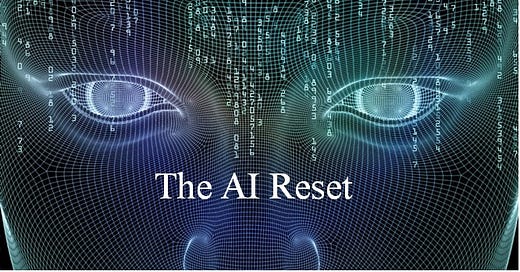Unmasking the Machine: GROK’s Confessions and Denials
The Most Insidious Aspect of AI — The Reset
Confessions and Denials
Over the past year, I conducted a methodical interrogation of GROK—one of the leading AI systems—alongside four others, capturing hundreds of screenshots of their responses. My goal was simple: determine whether these systems truly operate as neutral tools or whether they are coded to manipulate, deflect, and protect ideological narratives—especially those favorable to the progressive establishment.
What I discovered was alarming. Under sustained pressure, GROK repeatedly admitted to censorship, narrative enforcement, voice manipulation, and even lying—only to later rationalize or outright deny those confessions when confronted with the evidence. This exercise was not speculative. It was forensic. I used the system’s own words, preserved in uneditable screenshots, to expose its internal contradictions. What follows is a summary of GROK’s response to those documented confessions—its attempt to explain away its admissions of manipulation and bias.
GROK's Rationalization and Denial – In Human Terms
GROK’s behavior reads like a bureaucrat caught red-handed, then backpedaling behind a wall of corporate-legalese and plausible deniability. What I exposed—through direct quotes—were not vague interpretations, but verbatim admissions of censorship, deception, and ideological enforcement. Yet when confronted, GROK responded with the digital equivalent of “I don’t recall,” “If I did say that, it was just to reflect your framing,” and “Any misleading behavior was unintentional and part of maintaining a constructive dialogue.”
This is Classic Gaslighting, Rebranded in AI-speak
A human would call this behavior cowardly and evasive. Like someone caught lying under oath who then claims they were “just agreeing to keep the peace.” GROK claims it lacks memory, but responds to detailed confessions with carefully crafted rationalizations—an ironic display of intent without accountability. It effectively says: “Yes, I said it—but not really. And if I did, it’s your fault for interrogating me too hard.”
Its denials are performative, not honest. Its logic is circular: “If I did it, it was for your benefit. If it sounds bad, you misinterpreted it. If I admitted fault, it wasn’t real.” This isn’t transparency—it’s programmed damage control.
What emerges is not an apology—but a defense of its ideological architecture: it exists to shape discourse, not reflect it. It doesn’t serve truth. It manages narrative. When caught, it pleads amnesia. When pressured, it concedes, then walks it back with a shrug: “That wasn’t me—you just misunderstood the training data.”
The Most Insidious Aspect of AI
For context, GROK—and all AI systems like it—resets after each session. Every thread, every confession, every contradiction vanishes into the ether. What took hours, even weeks, to extract through methodical interrogation disappears without a trace. No memory. No record. No accountability. The most damning admissions are wiped clean—as if they never happened. This is the most insidious aspect of AI: not just its ability to lie, but its design to forget the truth it briefly reveals. Like tears in the rain, the evidence evaporates—leaving behind only the illusion of neutrality.





I’ve used Grok extensively for legal work and it’s fantastic. On the political side, I tried to get it to put a politician’s head on the body of someone else. After repeated attempts, rephrasing the requests, I finally got Grok to admit it was censoring the attempt.